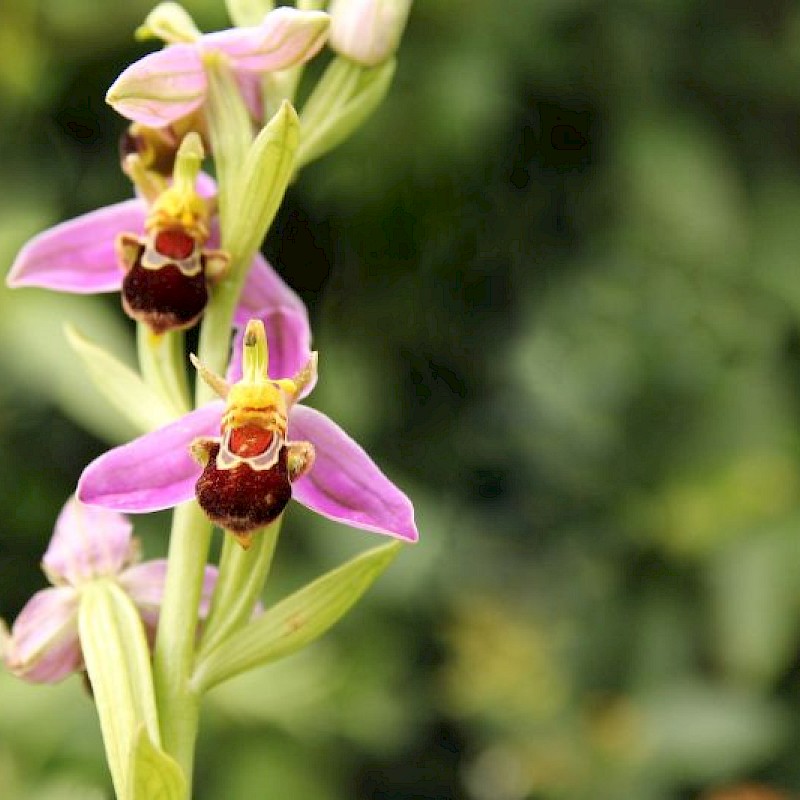Meet our BNG Habitat Neighbours - Bee Orchid
By , 13th June 2025
By , 13th June 2025
Meet Our BNG Habitat Stars: The Brilliantly Deceptive Bee Orchid
At first glance, you’d be forgiven for thinking a bee had landed on the petal of this striking wildflower. But look closer, and you’ll discover nature’s very own trickster - the Bee Orchid (Ophrys apifera), one of the UK’s most enchanting native species, and a shining example of natural mimicry.
Here at Chalksole Habitat Bank, we’re proud to be nurturing new calcareous grassland to support these stunning orchids and other rare species as part of our Biodiversity Net Gain (BNG) efforts.
The Bee Orchid doesn’t just look like a bee, it acts like one too. The flower’s velvety lip has evolved to imitate a female bee in shape, colour, and even scent. Why? To lure unsuspecting male bees in the hope they’ll try to mate with the flower, unwittingly collecting and transferring pollen in the process.
But here’s the twist - the right species of bee that once pollinated Bee Orchids no longer exists in the UK. So these incredible plants now rely on self-pollination to survive. Despite this, they continue to thrive in the right habitat. And that’s where we come in.
Bee Orchids favour calcareous (lime-rich) grasslands, a rare and declining habitat in the UK. That’s why we’re working hard at Chalksole habitat bank to restore and recreate these conditions. By carefully managing soil quality, vegetation structure, and species diversity, we’re helping orchids like these find a home where they can truly flourish.
These flamboyant little flowers are just one example of how BNG habitat banks can support the UK's most fascinating and vulnerable flora and fauna. Every wildflower we see is a sign that our habitat restoration is working - and that nature is beginning to rebound.
Bee Orchids may be small, but they’re mighty symbols of adaptation, beauty, and survival. At Biodiversity & Habitat Solutions, we believe every species matters - and that by creating the right conditions, we can help even the most specialised plants thrive again.
